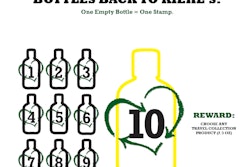They say that the only things you can be certain of in life are death and taxes. Can I qualify that and say, “and regulations.”
That’s especially the case if you work in a global company that deals with consumers. The Food and Drug Administration (FDA) in the U.S., the Medicines and Healthcare Products Regulatory Agency (MHRA) in the U.K., and the European Medicines Agency (EMA) in Europe are all forces that require cosmetics firms to update or extend their labeling. That’s something you simply have to do—there’s no alternative. However as we all know, their requirements change with great frequency as well as vary considerably between different markets.
This is particularly the case with the cosmetics industry, which is proud of its status as being one of the best policed industrial sectors in the way it interfaces with people on such a personal basis. This means cosmetics companies require an internal labeling strategy that is international and fit for purpose. The question is, whether it genuinely achieves that? And are you certain?
In the cosmetics industry, the biggest priority right now is almost certainly the new EU Regulation (number 1223/2009) that came into force in July 2013. Covering the management and transparency of cosmetics product information, this regulation has enormous implications for any brand marketing its products in Europe. However, the reality is that few corporations have so far achieved compliance. Getting up to speed with the regulation is after all a substantial task—affecting the way you capture and manage data right across the product life cycle and for every product you have on the market (as well as those you plan to launch).
An immediate practical implication you may not have considered yet, for example: All cosmetics companies must now nominate a so-called “single responsible person,” based in the EU, whose remit is to ensure the compliance of each product with the rules set out in Regulation No 1223/2009.
Poison control is another requirement, which means you (and all your designated representatives) must be transparently vigilant around labeling the ingredients used in products, as well as always be empowered to show that they have abided by restrictions around certain substances.
The biggest task facing cosmetics companies as they align themselves with this emerging regulatory environment concerns how they collect and manage information. This must be done centrally involving the creation of a standard “product information file” (PIF) for each product. Each PIF must be readily accessible for a period of 10 years after the last batch of a product was placed on the market, while firms have to submit required information promptly through an Internet portal to the requesting authorities.
While all these requirements appear demanding in terms of management time and attention, and cost, there will be benefits, as you will achieve greater transparency in your operations by being able to trace processes quickly and efficiently. It also looks very likely the U.S. will move toward harmonization with the EU, raising the international bar for industry transparency, which also means any work done will pay dividends later as other international markets fall in line.
Nonetheless, getting from here to where Brussels believes there is will require a lot of work. A useful place to start is to work to improve relationships and communications between different departments in the company as well as with your key suppliers and distributors.
The stark fact is that achieving consistency between the PIF and the packaging label is going to be a challenge. Across businesses, there is a lack of transparency between functions (e.g., between Marketing and Legal) as well as (perhaps structural?) communication issues as individual lines of business try to get content on packing in a less than wholly coordinated way.
IT systems will play a big part here by helping to organize and automate the way data is collected and managed. Companies will profit from reflecting on how best to organize internal processes to be as well prepared as possible. For example, can you as yet answer the question: “What would an approach able to deal with the above threats and challenges look like?”
The good news is that with a data-centred approach, you can create content centrally and only once; your system only has one instance of this content, which it will automatically reuse where needed and importantly track where used, so you never duplicate data. As a result, the creation of one master instruction document becomes faster, slicker, and consistent, putting you back in control.
Drivers of change
The important thing is to take action now. Big global brands (e.g., L’Oréal) will have started their work on this years ago; and any organization yet to take the first steps will have a lot of catching up to do. It’s a job worth doing, as quite apart from whatever penalties are brought to bear, non-compliance inevitably risks product recall, potential negative brand impact, and cost. If that happens, it will take more than a bit of PR or window-dressing to address that kind of damage.
To make all this even more complex, in a globalized market, labeling requirements will vary considerably between different markets and different regulatory regimes, while out of nowhere, social media and retail power are joining compliance as main drivers of ongoing and constant change concerning packaging labeling.
In day-to-day terms, that means the pack content has to adhere not only to the July regulation, but must also be sensitive to these other drivers, too. The reality is that the only way to do that consistently is with a business process that will support you to effect these changes rapidly and efficiently.
Neil Gleghorn is CEO of Kallik, a global provider of software solutions that simplify complex artwork management, generation, and approval challenges for customers in regulated industries.



























